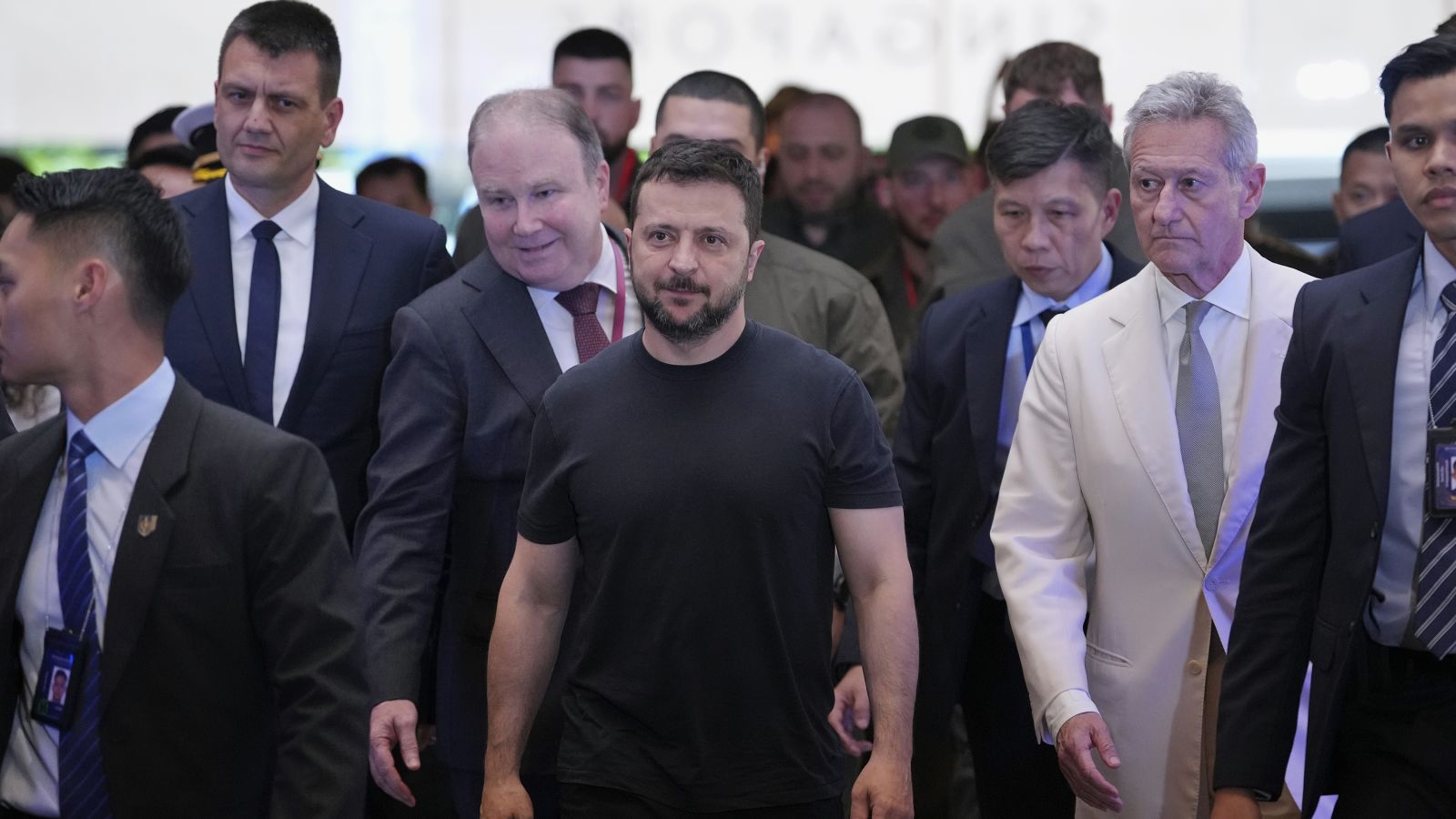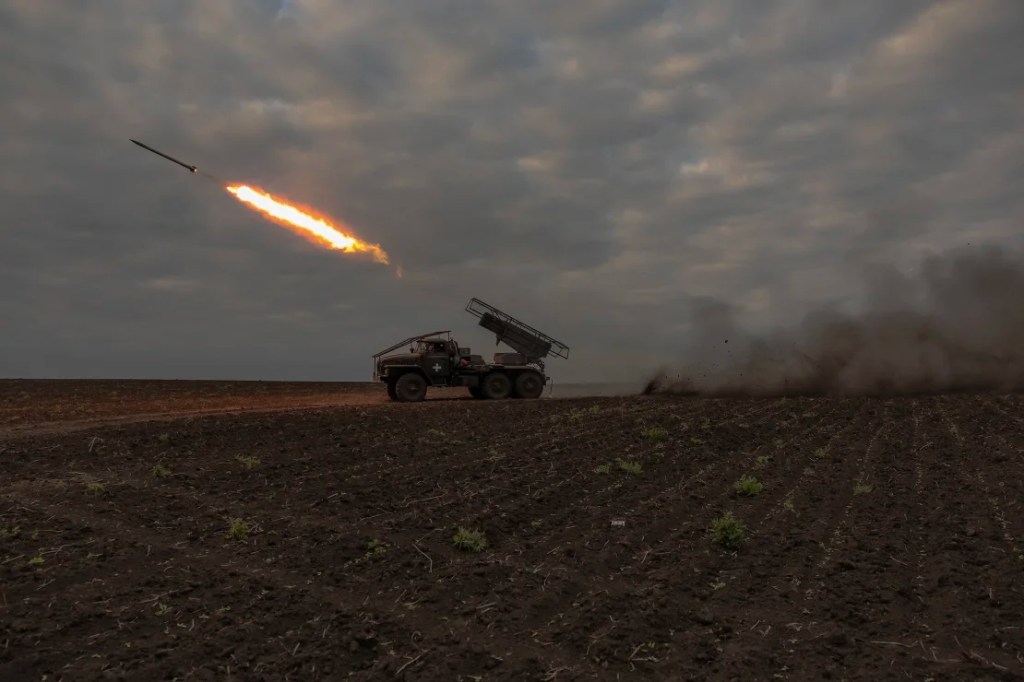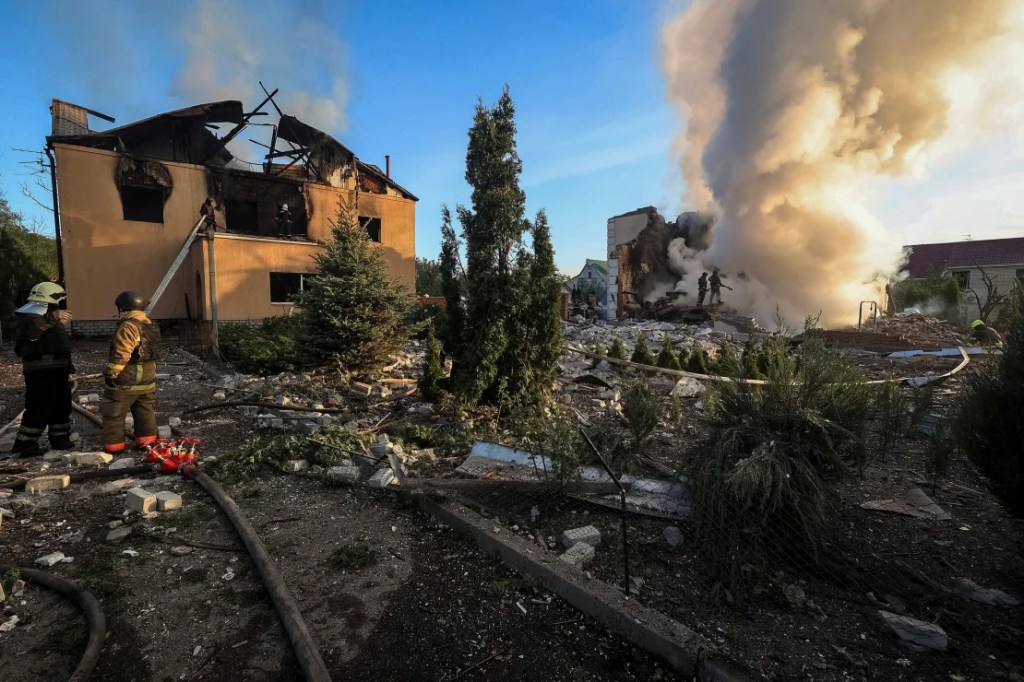Zelensky makes surprise appearance at Asia-Pacific defense ministers summit in Singapore

(CNN) — Ukrainian President Volodymyr Zelensky arrived in Singapore on Saturday for an unannounced appearance at a summit of defense chiefs from across the Asia-Pacific, as Ukrainian troops seek to counter a major Russian offensive toward the northeast.
Zelenskyy’s surprise appearance at the meeting is a clear example of Kiev’s determination to keep the international community committed to Ukraine’s defense and its vision for peace, more than two years after Russia’s devastating invasion.
The Ukrainian leader has traveled little outside his besieged country during the war and cancelled international events earlier this month as his troops defended themselves against a surprise Russian assault on northeast Kharkiv.
The CNN crew at the summit spotted Zelensky and his delegation arriving.
His attendance at the Shangri-La Dialogue in Singapore provides Zelensky with a unique opportunity to meet defense chiefs from across the Asia-Pacific, including China, which has deepened ties with Moscow since the war.
US Defense Secretary Lloyd Austin and the defence chiefs of US allies Australia, Japan and South Korea, as well as China’s defence minister, are also expected to attend the three-day meeting.
Announcing his arrival at the summit, Zelenskyy said in a statement The Pentagon confirmed this Saturday that Austin will meet Zelenskyy and Ukrainian Defense Minister Rustam Umerov at Shangri-La on Sunday to “discuss the current battlefield situation in Ukraine and underscore the United States’ commitment to ensuring that Ukraine has all it needs to defend itself against ongoing attacks within the framework of Russian aggression.”

Ukrainian forces launch a rocket towards Russian positions in the Kharkiv region on May 15, 2024. (Roman Pilipe/AFP/Getty Images)
Zelenskyy arrived in Singapore just weeks ahead of a Ukraine-backed peace summit in Switzerland, as Kiev desperately needs to shore up international support for its peace plan, especially in light of the looming US presidential election that could revise the level of American support for its cause.
Ukraine is directly dependent on international funding and arms and faces shortages of manpower and equipment. Months of political wrangling on Capitol Hill as well as a lack of supplies from NATO countries have left Ukraine’s forces far behind those of Russia. In late April, the United States finally approved a massive $61 billion aid package for Ukraine.
On Friday, Zelensky was in Sweden for a summit with northern European leaders, where he said Ukraine’s “top priorities” were securing more air defence systems and weapons, as well as “global efforts to force Russia to make peace” and its leader’s position on Platform X.
Zelensky can send a similar message in Asia.
The conflict, though a continent away, has been closely watched by governments across the region, especially those facing territorial disputes with the region’s other military and authoritarian power, China.
There is also a widespread view that the conflict in Europe has affected the security environment in Asia. Russia has fostered a prosperous relationship with North Korea, which Western governments believe has supplied war materials to Russian forces in recent months.
Moscow and Beijing have also deepened their strategic partnership during the war in Ukraine: The United States accused China of bolstering Russia’s defense industrial base with dual-use exports, and divisions between China and the West deepened over China’s close ties with the Kremlin.
Those exports were discussed during a meeting on Friday between Austin and his Chinese counterpart Dong Jun. After the meeting, a senior US defense official said Austin signaled to China that there would be consequences if Beijing continued to support Russia militarily.
According to the Chinese spokesman, Dong said China, which claims to be neutral in the conflict, has kept its “promise not to supply arms to any party involved in the conflict” and maintains strict controls on dual-use exports.

Firefighters at the site of a Russian missile strike in Kharkiv, Ukraine, on May 10, 2024. (Vyacheslav Madiyevsky/Reuters)
Beijing also confirmed on Friday that it would not send a delegation to an upcoming Ukrainian-backed peace conference in Switzerland, with its foreign ministry citing its view that any international peace conference should “enable equal participation of all parties with regard to Ukraine and Russia, and impartial discussion of all peace plans.”
Zelensky’s 10-point peace plan calls for Russia to withdraw all its troops from Ukrainian territory and restore Ukraine’s internationally recognised borders.
Zelensky has already made surprise appearances at world summits to focus on Ukraine’s plight and strengthen ties; his participation in last year’s Group of 7 (G7) summit in Japan is notable.
It is not clear whether he will have the opportunity to meet any Chinese officials during his stay in Singapore. Russia is not taking part in this meeting.
In an interview with Russia’s state news agency RIA Novosti, Russian Foreign Minister Sergei Lavrov on Thursday suggested that China could host a peace conference involving both Russia and Ukraine.
Zelensky’s arrival comes after US President Joe Biden broke with longstanding policy by allowing Ukraine to use American weapons in limited strikes inside Russian territory near the border with Kharkiv, CNN reported on Thursday, citing US officials.
A similar change occurred in the positions of the major European leaders.
However, the US election has raised uncertainty about the level of US support for Ukraine’s war effort if fighting continues into next year, seen as adding further urgency to Ukraine’s push for peace on its own terms.
Biden, a strong supporter of Kiev, is running for office against former President Donald Trump, who in the past has refused to say whether he wants Russia or Ukraine to win the war and has questioned his commitment to America’s NATO allies.
CNN’s Ivan Watson, Xiaofei Xu, Alex Stambaugh, Natasha Bertrand and Sharon Braithwaite contributed to this report.
(tag to translate) Volodymyr Zelensky
